Those We Lost
Emmett O’Connell (1936-2024)
Emmett O’Connell died on September 14, 2024. Named for Irish freedom-fighter Robert Emmet, O’Connell was born to parents from Cork and Sligo, raised in the South Bronx, and lived most of his adult life in Wexford.
Having been a champion ice and roller-skater as a teenager, Emmett went on to found several energy and mineral exploration companies, including Eglington Exploration PLC. and Great Western Mining Corporation, he was commonly hailed as “Ireland’s answer to J.R. Ewing.”
His son Óisin delivered a moving eulogy at the funeral service in Wexford, painting a vivid picture of his father. “While […] he determined he was going to make money, he never sold out his principles, never lost his radical edge which was his heritage,” he said. “He could talk to anyone, he could win over opponents by his gregariousness and good humor, and in his own words he described his role in business as ‘a catalyst, putting deals together and bringing individuals into a structure where they can play out their parts. That means not always having to be a member of the cast,’” Óisin said. “‘The one guideline is, whatever you are doing, jump right into the middle of it and don’t hold back.’” Besides being Irish America’s first investor, a member of our Hall of Fame and Business 100, and an occasional but enthusiastic contributor, O’Connell was a Knight of St. Gregory the Great, into which order he was inducted at the Vatican in 1986. O’Connell was preceded in death by his sister Deidre; he leaves behind his brother, Kevin, sisters Geraldine and Gretta, his beloved wife, Ray, children Óisin, Róisín, and Robert, and nine grandchildren.
Edna O’Brien (1930-2024)
Prolific novelist Edna O’Brien, a native of Tuamgraney, County Clare, died in July, aged 93. From her first published novel The Country Girls, O’Brien’s works portrayed deeply human Irish women with powerful emotions, and she launched discussion of women’s issues and roles in society through her works and her personal life. Yet she wrote not for glory or achievement, but for its own sake. “I always thought of writing not as an escape, but as a path into another kind of universe, another mode of
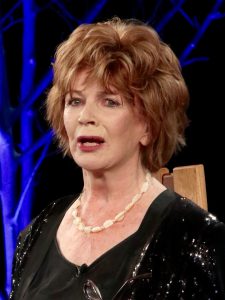
thought and feeling,” she told Irish America in an interview. “I believed that words were, of themselves, animate, and when grouped together, had an alchemy to them.”
At the summit of a career viciously targeted for stirring scandal, O’Brien was made an honorary dame of the British empire, a commander of the French Ordre des Arts et des Lettres, and a Saoi: the highest accolade of the Aosdána (the Irish creative arts academy). She was also awarded the Ulysses Medal by University College Dublin, at which ceremony Professor Declan Kiberd compared her to her beloved James Joyce. “Like Joyce, she has lived in exile,” he noted, “but never forgotten a single thing.”
“From her first model to her last, Edna took a stand for free expression that the whole world might be thankful for,” fellow novelist Andrew O’Hagan told The Clare Champion. “As long as there is wonder, as long as an Ireland and human beings are longing for progress, there will be an Edna O’Brien and a glow around her memory.” O’Brien leaves behind her sons Carlos and Sasha, several nieces, nephews, and grandchildren. She was laid to rest on Inis Cealtra (known as “Holy Island”) off County Clare’s Lough Derg, the monastic ruin where 150 mourners ferried to attend her final wishes.
Malachy McCourt (1931-2024)
Beloved Irish storyteller Malachy McCourt died in March, at the age of 92. He was born in Brooklyn to Irish emigrants, but the family moved to Limerick when he was three, and McCourt wouldn’t return to America until the age of 20. Over his storied life, McCourt became quite the Renaissance man, joining the Air Force, then sharing
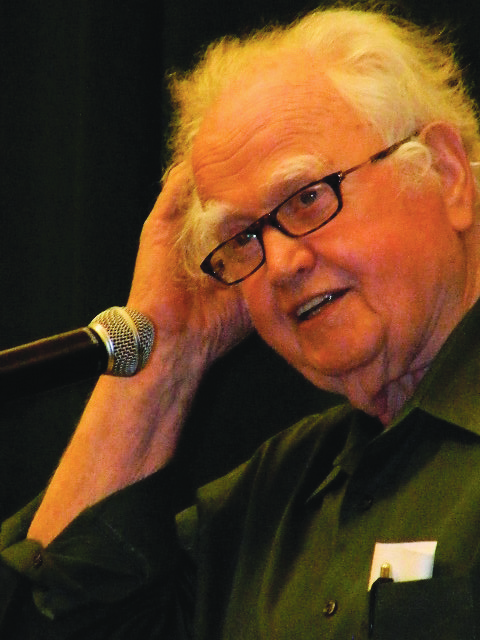
his notoriously lively humor from the streets of New York to a guest spot on The Tonight Show, eventually to win the world over with his best-selling memoir, A Monk Swimming. He tended bar, eventually owned one (Malachy’s on Third Avenue), hosted talk radio (“I couldn’t wait to hear what I had to say next!” he told Irish America in 2011), played guest and supporting roles on television (the longest-running as the bartender on Ryan’s Hope) and some stints on Broadway, and capped his progressive activism by running for governor of New York as the Green Party candidate in 2006. Despite his many endeavors, he said his proudest achievement was “freeing myself from rigid Irish respectability and being a first-class, ocean-going liberal.”
“A legend long before his death, that legend will undoubtedly grow, but those who knew him will cherish the memory of a lovely man, humble and caring, beneath all the accolades,” said Larry Kirwan in an Irish Echo tribute. “He was what they call in Irish togha fir, literally, “‘the choice of men.’”
McCourt was predeceased by his brother Frank (celebrated author of Angela’s Ashes). He is mourned by his wife Diana; children Siobhán, Malachy Jr., Conor, and Cormac; stepdaughter Nina; nine grandchildren; and one great-grandchild.
Remembering Shane
Victoria Mary Clarke arrived in Edinburgh to pay tribute to her late husband the songwriting genius Shane MacGowan. She appeared on stage with Johnny Mac and the Faithful for two final Fringe performances of “For The Love of Shane MacGowan,” at the end of August.
The band rattled through two Pogues’ sets to a packed crowd at the Voodoo Rooms. John McLaughlin told stories of Shane’s visit to Celtic Park the day Celtic won the league against Livingston in 2002. Shane’s main concern that day was meeting Jimmy Johnstone and having a fight with the club’s mascot Hoopy the Huddle Hound.
He told this writer in the aftermath “Going out on the pitch at Parkhead was like going on stage at the Barrowlands – it was the same crowd. Celtic are the only team I’m interested in apart from the Ireland team, but I’m not really a big soccer fan.
Victoria echoed those words and she also spoke not only about the trauma of losing Shane, but also being married to someone with a serious drinking problem. She added that MacGowan had not drunk during the last year of his life and that he was “so grateful to have had that opportunity to see what life was like without it, and that he was able to beat it in his final year.” At that moment the crowd broke into a rapturous applause, perhaps not knowing MacGowan had finally confronted his demons and recognising an issue that has been too romanticized without seeing the other side of the problem.
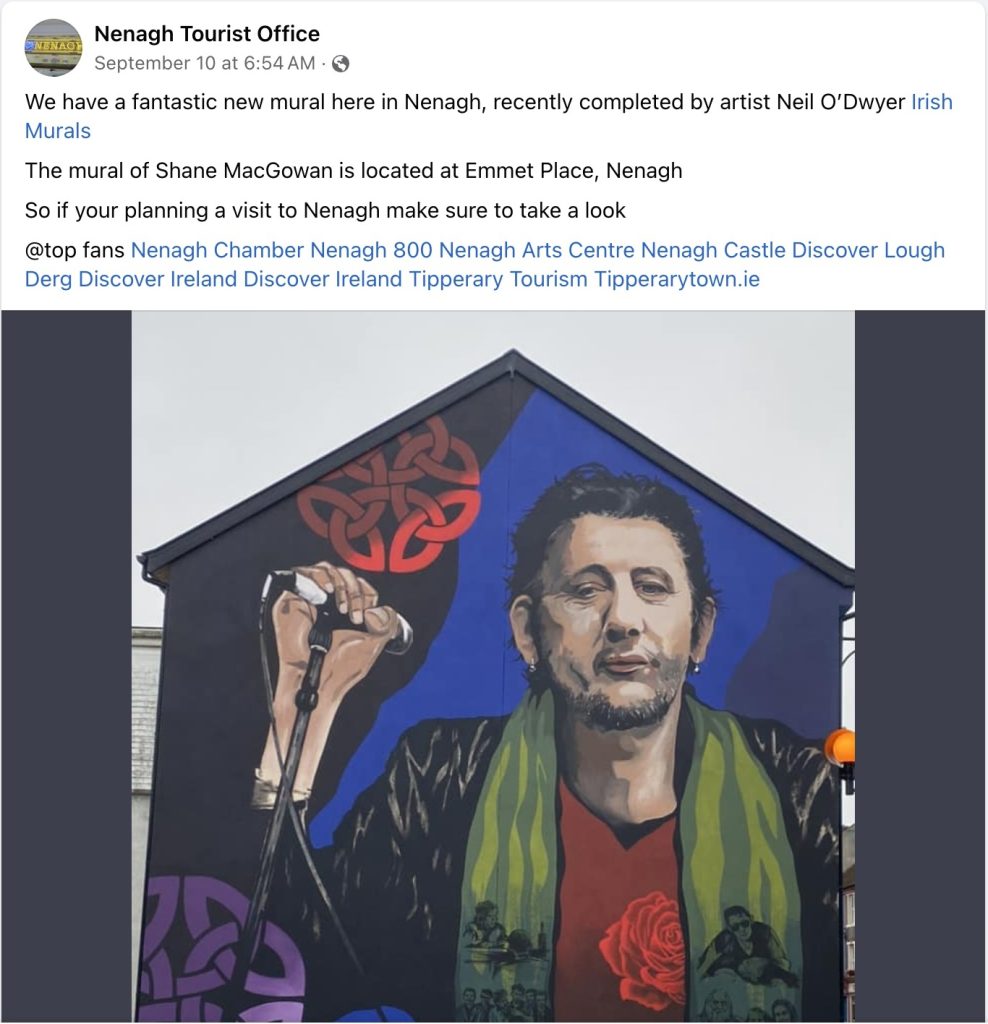
She added that Shane “always had tremendous respect and tremendous compassion for anyone who was affected (by alcoholism), I never once saw him once walk past a homeless person. He would always stop, he would always give them a cigarette and money, like wads of money.” She added that it could be “a few hundred quid or even a grand and that he always had time to talk.”
Victoria reminded the audience of Sinead O’Connor who also died last year. She said: “I’ve met a lot of musicians but those two people really stood out as people who cared deeply about humanity. They had a deep love of humanity and neither was interested in being better than anyone else, they were not interested in velvet ropes, they were not interested in being VIPs, they didn’t have limos.”
It’s a good point that Victoria makes, I interviewed Shane at various points over the years and it didn’t matter if Bono or the President of Ireland or Johnny Depp were in the building, (they actually were at the time). He would ask how you were and how your family were and didn’t care what else was going on at the time. He’d ask to speak with my gran on the phone longer than I had interviewed him when I first began my career as a writer.
Shane was a rarity in the music industry in that he had a genuine love of the ordinary and everyday, he could see the beauty in that, his wife Victoria reminded us of this fact in Edinburgh.
As Bruce Springsteen said: “I don’t know about the rest of us, but they’ll be singing Shane’s songs 100 years from now.”
Perhaps more than Springsteen or Dylan or anyone else you care to think of, Shane MacGowan will be remembered. But what was even more important than that was his character, and how he treated people. He spoke to people, he prayed for people and he had time.
Beyond the wild man persona, Shane MacGowan was a man you don’t meet every day.
– By Richard Purden

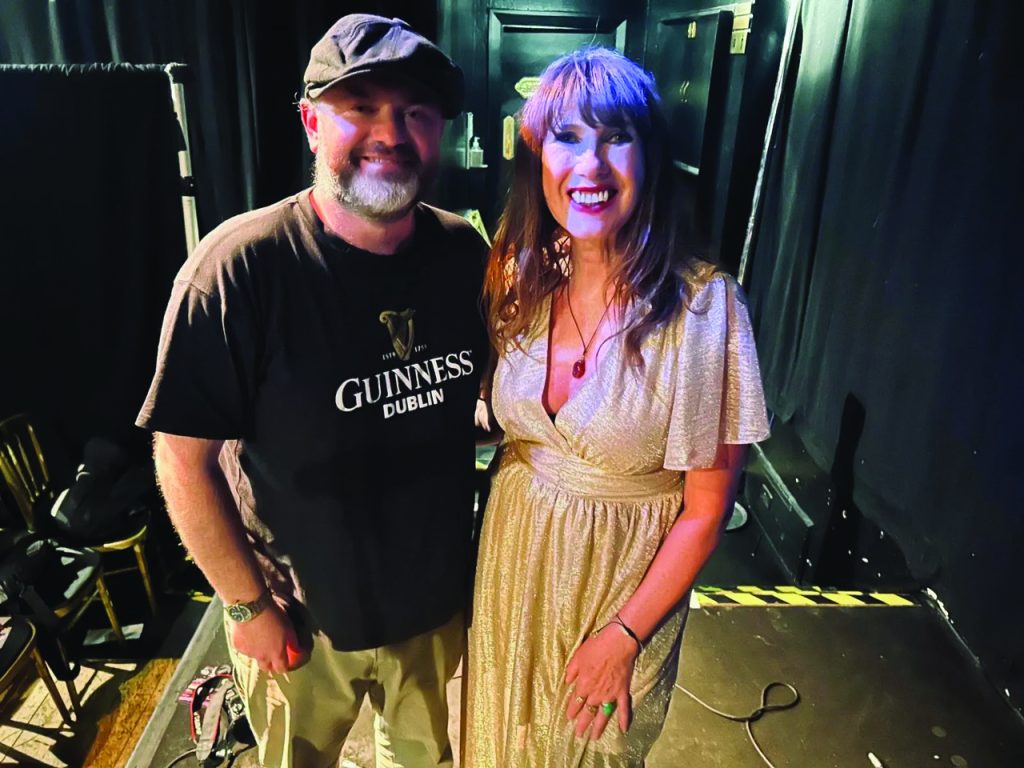
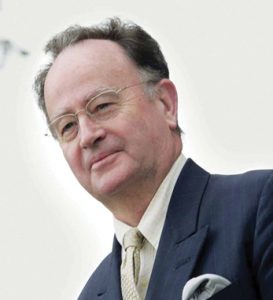
Leave a Reply